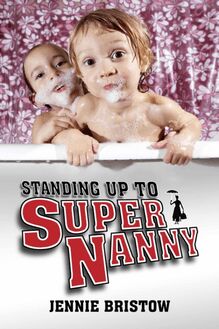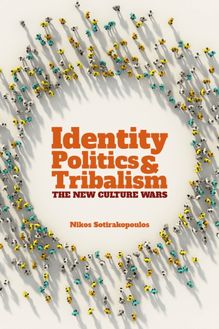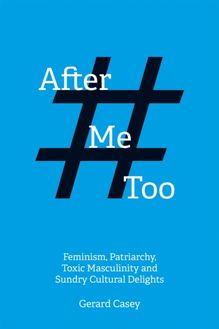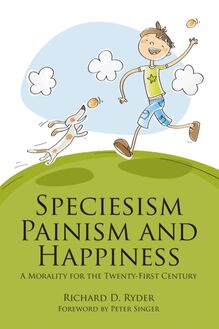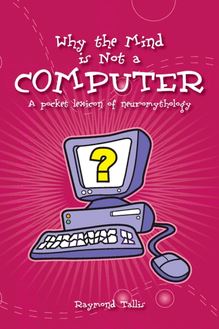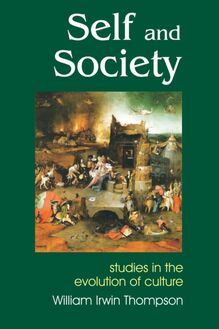Standing Up to Supernanny , livre ebook
76
pages
English
Ebooks
2013
Vous pourrez modifier la taille du texte de cet ouvrage
Obtenez un accès à la bibliothèque pour le consulter en ligne En savoir plus
Découvre YouScribe en t'inscrivant gratuitement
Découvre YouScribe en t'inscrivant gratuitement
76
pages
English
Ebooks
2013
Vous pourrez modifier la taille du texte de cet ouvrage
Obtenez un accès à la bibliothèque pour le consulter en ligne En savoir plus
Publié par
Date de parution
09 septembre 2013
Nombre de lectures
0
EAN13
9781845406585
Langue
English
Publié par
Date de parution
09 septembre 2013
Nombre de lectures
0
EAN13
9781845406585
Langue
English
Title page
Standing Up to Supernanny
Jennie Bristow
with
The Institute of Ideas Parents’ Forum
SOCIETAS
essays in political
& cultural criticism
imprint-academic.com
Copyright page
Copyright © Jennie Bristow, 2009
The moral rights of the author have been asserted.
No part of this publication may be reproduced in any form without permission, except for the quotation of brief passages in criticism and discussion.
Originally published in the UK by Societas
Imprint Academic, PO Box 200, Exeter EX5 5YX, UK
Originally published in the USA by Societas
Imprint Academic, Philosophy Documentation Center
PO Box 7147, Charlottesville, VA 22906-7147, USA
2013 digital version by Andrews UK Limited
www.andrewsuk.com
Acknowledgements
This book would not have been possible without the intellectual and moral support of many people. Many thanks to Jane Sandeman and the members of the Parents’ Forum; to Claire Fox and the Institute of Ideas team; and to spiked . For their interest and editorial input, thanks to Veronique Baxter, Frank Furedi, Ellie Lee, and the team at Societas. Above all thanks to my family for constantly bringing home why this matters.
Jennie Bristow, Kent 2009
Notes on Contributors
Jennie Bristow writes the monthly Guide to Subversive Parenting for the online publication spiked , and is a frequent guest on Radio Four’s Woman’s Hour . She is co-author, with Frank Furedi, of Licensed to Hug: How child protection policies are poisoning the relationship between the generations and damaging the voluntary sector (Civitas 2008), and author of Maybe I Do: marriage and commitment in singleton society (Academy of Ideas 2002). Bristow edits the website Parents With Attitude <http://www.parentswithattitude.com> and the BPAS journal Abortion Review <http://www.abortionreview.org>. She is currently researching the changing contours of inter-generational relations.
Dr Val Gillies is a reader at London South Bank University, and author of Marginalised Mothers: Exploring Working Class Experiences of Parenting. London and New York: Routledge (2006).
Dr Helene Guldberg is co-founder and director of spiked <http://www.spiked-online.com> and author of Reclaiming Childhood: Freedom and play in an age of fear . London and New York: Routledge (2009).
Christina Hardyment is a writer and historian with special interest in family and domestic matters, and author of Dream Babies: Childcare advice from John Locke to Gina Ford. London: Francis Lincoln Publishers (2007).
Jennifer Howze is lifestyle editor at Times Online , and edits The Times ’s parenting blog Alpha Mummy www.alphamummy.com
Tracey Jensen is a doctoral student at the Open University.
Dr Ellie Lee is a lecturer in social policy at the University of Kent; co-ordinator of Parenting Culture Studies <http://www.parentingculturestudies.org>; and author of Abortion, Motherhood and Mental Health: Medicalising reproduction in the United States and Great Britain . New York: Aldine de Gruyter (2003).
Dr Jan Macvarish is a researcher at the University of Kent, with an interest in the sociology of family life and intimate relationships.
Nancy McDermott is a journalist based in Brooklyn, New York, and chair of the Advisory Board of Park Slope Parents, the second largest parenting group in the USA.
Jane Sandeman is the founder and convenor of the Institute of Ideas Parents’ Forum <http://www.instituteofideas.com/events/parentsforum.html>.
Zoe Williams is a columnist for the Guardian , with a particular interest in feminism and babies.
Foreword
As I write, yet another ‘landmark’ report has been published claiming that British children are in a worse state than any in Europe, and that parents are to blame. A Good Childhood: Searching for values in a competitive age , commissioned by the Church of England Children’s Society (Layard and Dunn 2009; The Children’s Society 2009a), contains the standard list of solutions to this apparent problem of degenerate kids and half-assed parenting—parenting education, parenting programmes and psychological support.
The report, as with many others of its ilk, claims to be reflecting the views of children—whether it does this is debatable. But one voice that is rarely even solicited in the contemporary debate about parenting is that of parents. It is accepted that parents are the villains, incompetents and saviours of our ailing society, who are waiting stage left to receive the next policy initiative thrown in their direction.
This situation is the backdrop to the Institute of Ideas Parents’ Forum. Three years ago I, along with two other mothers who also had children at pre-school and primary school, decided that we wanted to do something more than moan about how many of these initiatives impacted on our lives and made us feel that we were always doing something wrong. We wanted to understand why they were happening, why we weren’t allowed to just bring up our children how we wanted to, and whether there were any other people—parents and non-parents—who felt the same way. And we found that yes, there were people out there who did want to question the idea that there was some exact science to being a parent that only the experts could understand and prescribe. People did want to understand why intervening in something as intimate as family relationships had become one of the main planks of social policy
From the small monthly discussions of the Parents’ Forum, we developed a debate strand for the annual Battle of Ideas festival in November 2008, under the headline ‘The Battle for the Family’. This successful series of debates, kindly sponsored by the Economic and Social Research Council (ESRC), brought together academics, journalists, policy-makers and parents to discuss why parenting has become such a key issue today, and what the impact of this shift has been on the broader politics of the family. Many of the panellists involved in ‘The Battle for the Family’ have contributed their reflections on the parenting debate to this book, and we thank them for their ongoing work and support in this area.
Jennie Bristow, the main author of Standing up to Supernanny , isa key member of the Parents’ Forum, and this book brings together many of the discussions we have been pursuing for the past three years. For us, the key point is that, despite the continual bad publicity, the family remains, for most people, ‘a haven in a heartless world’. People still want to have children, and when they do they realise how brilliant it is. Yes it is hard work, yes it does turn your life upside down—but most parents wouldn’t change it for anything. And this is what we are working to defend.
In an age of parent-bashing policy and intrusive expert advice, Jennie argues that we must reclaim the ‘muddled messiness’ that is family life. This means that there is not an exact science to being a parent to your children: there is not some recipe out there that tells you the exact amount of love you should give to your children, the exact way you should discipline your children, the exact authority you should exercise as a parent. You make the rules—for your children your parenting style is the right style. The book is a clarion call for parents not to get persuaded by the experts that there is a recipe to be assiduously followed which will produce the perfect child. As Jennie concludes, we are adults, not children to be bossed around. We should and must take responsibility for our own families and stand in solidarity with other parents.
I hope that this book is the start of a movement where parents find their voice and their confidence and reclaim the terrain that is rightfully theirs.
Jane Sandeman, March 2009
PART ONE — Standing up to Supernanny
1. Introduction
It should be a wonderful time to be a parent. Standards of living are higher than ever before; women no longer have to choose between work and motherhood; thanks to modern contraception we can plan the number and timing of our children, ensuring that we only have kids if we want and when we want. Men bathe babies, change nappies, attend the birth of their children and can only expect a meal on the table if they cook it themselves—and they are encouraged to feel good about themselves for doing all this.
So why is it that with all of these choices, all the flexibility, equality, love and respect we have come to expect as our right, parenthood comes as such a shock to the system? How can the arrival of one small extra person into our lives send the world topsy-turvy, transforming the savvy, confident people we were into a craven mass of earnest anxiety, hooked on the desire to do the right thing while our legs chafe in the shackles of Being Home? Has nothing really changed after all; has sexual inequality been suspended only for childless people, just waiting to come around again once we embark on parenthood? Or are we just hopelessly inept, and insufferably selfish, individuals?
John Bowlby, the famous child psychiatrist who in the middle of the last century popularised the notion that babies separated from their mothers would suffer tremendous trauma, has preached about the tremendous hard work involved in looking after small children, including giving them enough time and attention which ‘means sacrificing other interests and other activities’. ‘For many people today these are unpalatable truths’, he said in 1980 (Bowlby 1988, p2). The idea that modern parents simply aren’t up to the job, that they can’t handle the selflessness of looking after children or the responsibility of bringing them up without great swathes of official advice and support, has become a key feature of government policy and offic
